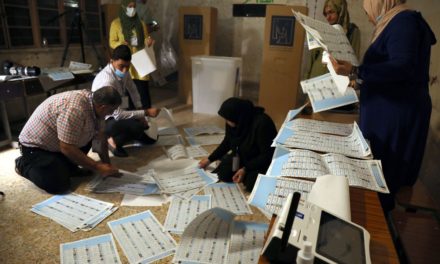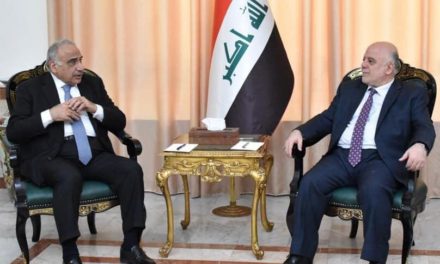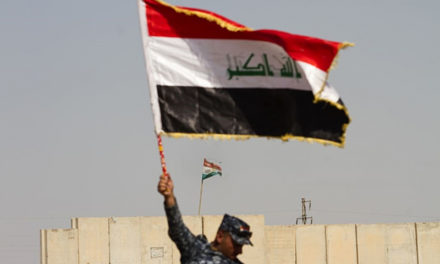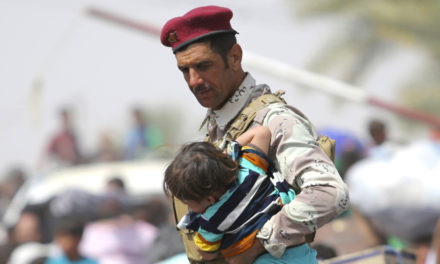Many commentators have rightly described the upcoming elections as crucial, mainly because of the potential consequences of its results on the future of Iraqi politics. The political class has taken opposing sides on several polarizing issues, such as the politicization of the PMU, the nature of Baghdad-KRG relations, and the response to the regional rivalry between Saudi Arabia and Iran. While some incumbent elites have the luxury of attracting votes based on actual achievements, such as defeating ISIS and restoring federal control of disputed territories, others have resorted to populism as a means to remaining relevant.
Populism is rooted in Iraqi political culture. The dictator Saddam Hussein always gave populist speeches to cover up humiliating defeats, respond to international sanctions, and eliminate opposition movements. Most elites of the post-2003 era have also realized the power of populism in attracting the attention of the masses. Sectarian and ethnic rhetoric has dominated the political scene and contributed to several crises, including the rise of ISIS, which exploited the widespread rhetoric of Sunni marginalization that enabled ISIS to easily capture Sunni towns and cities.
The Iraqi response to the rise of ISIS was inspired by Grand Ayatollah Ali Al-Sistani and his fatwa to defend the territorial integrity of Iraq and safety of all Iraqi citizens, regardless of their sect or ethnicity. This led to a surge in Iraqi nationalism. However, this vision has been challenged by populist rhetoric that has begun to evolve as the election cycle approaches.
Populist politicians are trying hard to bring back the ethnic and sectarian discourse that dominated Iraqi politics pre-ISIS in order to gain regional support and domestic audience. This was apparent during Masoud Barzani’s campaign for secession which rallied around the victimhood of Kurds and their marginalization by Arabs. Also, some Sunni politicians have start to mobilize sectarian rhetoric to galvanize Sunnis by attributing the damage brought by ISIS and its consequences to the marginalization of Sunnis by a Shia-led government. Meanwhile some Shia politicians have started to mobilize their bases by accusing Prime Minster Abadi of being too reconciliatory with Saudi Arabia.
Such populist rhetoric could be attributed to several domestic and regional factors. Domestically, the widespread inequalities among rich and poor, the concentration of poor in certain areas, and the pervasive corruption has led to a widespread sentiment against incumbent parties and politicians. On the other hand, economic hardship, which resulted from the fall of oil prices and the costly war on ISIS, made it difficult to maintain strong patronage networks that could be mobilized to ensure electoral success. Regionally, adopting populist rhetoric secures support; the rivalry between Iran and Saudi Arabia polarized the region and each pole is aspiring to sponsor Iraqi factions that align with their interests. Such support always translates into financial transactions and political support that help populists expand their patronage network and have a comparative advantage over domestic rivals.
The literature on populism demonstrates its drastic effects, such as polarizing societies, weakening economies, and undermining representative democracies. Given that Iraqis have sacrificed precious blood and treasure, there should be organized efforts to close the road on populist leaders. The literature on populism in Latin America found that populism recedes when voters are exhausted by populist gambits and reform agendas subsequently dominate the political scene.
Iraqis across the ethno-sectarian spectrum have started to question populist leaders and their rhetoric, especially after recognizing their lavish lifestyles, while their constituencies are left suffering from economic hardship and the effects of terrorism. On the other hand, an alternative brand of discourse has emerged that focuses on a reform agenda, such as fighting corruption, improving governance, and relying on dialogue to tackle outstanding issues.
To sum up, the unified Iraqi response to the rise of ISIS gave hope that a moderate rhetoric would gain prominence over a populist one. However, some incumbent elites have already started mobilizing populist rhetoric. But most Iraqis are exhausted by the economic and political turbulence brought by populist leaders and hence their patronage networks might be the only escape for them.
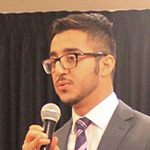
Hashim Al-Rikabi
Hashim Al-Rikabi is a researcher at Al-Bayan Center for Planning and Studies in Baghdad where he focusses on institutional reform and rule of law. He holds a Master’s in Political Science from Western Illinois University.


